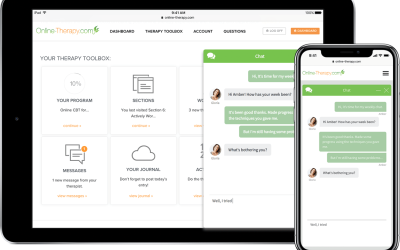Cognitive behavioral therapy (CBT)
Cognitive behavioral therapy (CBT) is a form of talk therapy that is designed to help individuals identify and change negative thought patterns and behaviors. It is a popular and effective treatment option for a wide range of mental health issues, including anxiety, depression, and addiction. CBT has been extensively researched and has been found to be an effective treatment in numerous clinical trials.
What is Cognitive Behavioral Therapy?
Cognitive behavioral therapy is a type of psychotherapy that focuses on the connection between an individual’s thoughts, feelings, and behaviors. The idea is that our thoughts and beliefs influence our emotions and actions, and by learning to recognize and change negative or distorted thoughts, we can improve our emotional and behavioral responses.
CBT typically involves working with a therapist in one-on-one sessions, although group therapy and self-help options are also available. Sessions may last anywhere from 30 minutes to an hour, and treatment typically lasts for a set number of sessions, anywhere from a few weeks to a few months.
How Does Cognitive Behavioral Therapy Work?
CBT is based on the idea that our thoughts, rather than external events, determine our feelings and behaviors. For example, if you have the thought “I’m going to fail this test,” you may feel anxious or defeated as a result. However, if you change your thought to “I will do my best on the test and am prepared,” you may feel more confident and motivated.
During CBT, a therapist will work with the individual to identify negative or distorted thoughts and help them develop coping strategies to challenge and change these thoughts. The therapist may also help the individual develop new skills and behaviors to improve their overall functioning and well-being.
What Can Cognitive Behavioral Therapy be Used to Treat?
CBT has been found to be effective in treating a wide range of mental health conditions, including:
• Anxiety disorders, such as generalized anxiety disorder, panic disorder, and phobias
• Depressive disorders, such as major depressive disorder and persistent depressive disorder
• Bipolar disorder
• Schizophrenia
• Eating disorders, such as anorexia and bulimia
• Substance abuse and addiction
• Attention deficit hyperactivity disorder (ADHD)
• Post-traumatic stress disorder (PTSD)
Benefits of Cognitive Behavioral Therapy
There are several benefits to using CBT as a treatment option:
• It is typically a short-term treatment, with most people experiencing significant improvement within 6 to 20 sessions.
• It is a flexible treatment option that can be tailored to the individual’s specific needs and goals.
• It is a practical approach that focuses on the here and now, rather than delving into the past.
• It teaches skills that can be used for a lifetime, rather than just providing temporary symptom relief.
Cognitive Behavioral Therapy Techniques
There are several techniques commonly used in CBT, including:
• Cognitive restructuring: This involves identifying and challenging negative or distorted thoughts and replacing them with more realistic and helpful ones.
• Exposure therapy: This involves gradually exposing the individual to the thing they are afraid of in a controlled and safe environment, with the goal of reducing fear and anxiety.
• Problem-solving: This involves teaching the individual new ways to approach and solve problems in their life.
• Relaxation techniques: This may involve teaching the individual techniques such as deep breathing, progressive muscle relaxation, or meditation to help them manage stress and reduce anxiety.
Challenges with Cognitive Behavioral Therapy
Like any treatment option, CBT may not work for everyone and can be challenging for some individuals. Some challenges with CBT may include:
• It requires active participation and commitment from the individual.
• It may be difficult for some individuals to identify and change negative thoughts and behaviors.
• It may be difficult to find a therapist who is trained in CBT, particularly in more rural or underserved areas.
Alternatives to Cognitive Behavioral Therapy
If CBT is not a good fit for an individual, there are other treatment options that may be helpful, including:
• Medication: Antidepressants, antipsychotics, and other medications may be helpful in managing mental health symptoms.
• Other forms of talk therapy: Options such as interpersonal therapy, dialectical behavior therapy, and psychoanalytic therapy may be helpful for some individuals.
• Self-help strategies: This may include things such as reading self-help books, joining a support group, or engaging in activities that promote relaxation and well-being.
Cognitive behavioral therapy is a widely used and effective treatment option for a variety of mental health issues. It involves working with a therapist to identify and change negative thoughts and behaviors and can be tailored to the individual’s specific needs and goals. While it may be challenging for some individuals, it has been shown to be an effective treatment option for a wide range of mental health conditions.

